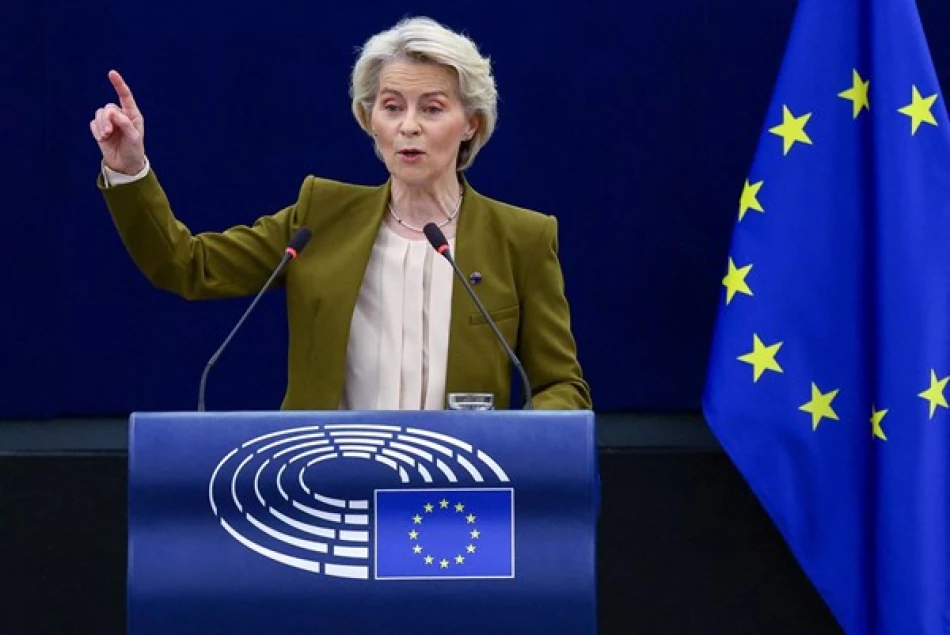
EU Proposes Age Limits for Social Media Use to Protect Youth Online
Europe Moves Toward Social Media Age Limits as Digital Child Safety Takes Center Stage
European Commission President Ursula von der Leyen announced Wednesday her support for establishing minimum age requirements for social media use across the European Union, signaling a potential regulatory shift that could reshape how tech giants operate in one of the world's largest digital markets. The move reflects growing concerns about children's online safety and positions Europe as a potential trendsetter in digital child protection policies.
A New Regulatory Framework in the Making
Speaking before the European Parliament in Strasbourg, von der Leyen outlined plans to commission a panel of experts by year's end to advise on the best approaches for implementing social media age restrictions. This initiative represents the EU's latest attempt to regulate Big Tech, following previous landmark legislation like the Digital Services Act and Digital Markets Act.
"Just as in my day, we as a society taught our children that adult content wasn't allowed until a certain age, I think it's time to consider doing the same thing for social media," von der Leyen told EU lawmakers. Her comments suggest the Commission views social media platforms through a similar lens as traditional age-restricted content like alcohol, tobacco, or adult entertainment.
Parental Concerns Drive Policy Momentum
Von der Leyen's proposal stems from widespread parental anxiety about children's digital exposure. "I feel the concern of parents who are doing their utmost to keep their children safe. These parents fear that their children could be exposed to widespread risks with just a click on their phone," she emphasized.
This sentiment reflects broader European attitudes toward tech regulation, where policymakers have consistently prioritized consumer protection over industry convenience. Unlike the United States, where tech companies enjoy relatively light regulatory oversight, the EU has positioned itself as a global leader in digital governance.
Global Precedents and Market Implications
The EU's consideration of social media age limits follows similar moves by other jurisdictions. Australia recently passed legislation requiring social media platforms to verify users' ages and block access for those under 16, while several U.S. states have introduced comparable measures, though many face legal challenges on First Amendment grounds.
What This Means for Tech Companies
If implemented, EU age restrictions could force major platforms like Meta, TikTok, and Snapchat to overhaul their verification systems and content moderation practices. The compliance costs could be substantial, particularly for smaller platforms lacking the resources of tech giants. However, companies that successfully adapt could gain competitive advantages in markets where child safety becomes a key differentiator.
The timing is particularly significant as several major platforms already face scrutiny over their impact on youth mental health. Meta's internal research showing Instagram's negative effects on teenage girls, revealed in congressional hearings, has intensified calls for stronger protections.
Technical Challenges and Privacy Concerns
Implementing effective age verification presents complex technical and privacy challenges. Current methods range from simple self-reporting to more sophisticated biometric verification, each with distinct trade-offs between effectiveness and user privacy. The EU's strict data protection rules under GDPR could complicate verification processes that require collecting additional personal information.
Industry observers expect tech companies to push back against overly restrictive requirements, arguing that parental controls and education represent more effective approaches than blanket age restrictions.
Economic and Social Ramifications
Beyond immediate compliance costs, social media age limits could reshape digital advertising markets, as platforms lose access to younger demographics that often represent their most engaged users. This shift might accelerate the development of age-appropriate alternatives or prompt platforms to redesign their services around older user bases.
The proposal also reflects Europe's broader strategy of asserting digital sovereignty, using regulatory tools to shape global tech standards. Previous EU regulations have often become de facto global standards as companies find it easier to implement uniform policies rather than maintain separate systems for different jurisdictions.
With expert recommendations expected by year's end, the EU appears committed to moving beyond voluntary industry self-regulation toward mandatory protections for children in digital spaces. The outcome could establish a new global benchmark for balancing technological innovation with child welfare in the digital age.
Most Viewed News

 Layla Al Mansoori
Layla Al Mansoori






